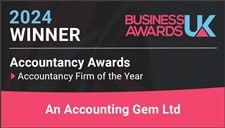The haulage sector has faced plenty of challenges in recent years. Fuel costs, insurance premiums and maintenance all add up, and margins can be tight. While you cannot control every outgoing, you can make sure you are not handing more than necessary to HMRC.
Many firms miss out on reliefs simply because the rules are not used to full advantage. Here are five practical ways to make the tax system work in your favour.
- Keep on top of everyday costs
Haulage is full of small but regular expenses. Fuel, servicing, repairs, protective clothing, parking, tolls, overnight accommodation and drivers’ meals are all allowable. Across a fleet, these soon add up, so having a reliable process for capturing receipts and logging costs is essential. It is one of the simplest and most effective ways to cut your tax bill. - Use capital allowances when upgrading vehicles
Buying new lorries or trailers is a major investment, but there is tax relief available. The Annual Investment Allowance allows you to deduct the full cost of qualifying vehicles and equipment against profits, up to £1 million. That means the tax benefit comes in straight away rather than being spread over years, which can make a huge difference when investing in your fleet.
https://www.gov.uk/capital-allowances/what-you-can-claim-on
- Plan the timing of spending and income
Tax planning is not only about what you claim, but when you claim it. If you know repairs or upgrades are due, carrying them out before your year-end means the cost reduces this year’s profit, and in turn your tax bill. On the other side, if it suits your business, delaying an invoice so that income falls into the next year can help smooth cashflow. It is simply about being aware of the calendar and making the timing of your spending work for you. - Tighten up on VAT
VAT recovery is a key area for haulage firms, particularly where fuel, leasing and maintenance are concerned. If you operate across borders, you may also be entitled to reclaim foreign VAT, but the paperwork needs to be accurate. Keeping VAT records in order avoids missed claims and prevents costly errors. - Make the most of driver subsistence and travel claims
Long-distance drivers often incur costs for meals, overnight stays and other travel-related expenses. These are deductible, but many businesses under-claim because records are not kept in enough detail. Across a team of drivers, properly claiming subsistence and accommodation can save thousands each year.
Good tax planning is not about being clever with loopholes. It is about applying the rules fairly and consistently so that you only pay what you owe. For haulage businesses, where costs are high and profit margins are slim, these savings can make a real difference.
If you are not sure whether you are claiming everything you should, it is worth speaking to someone who knows the sector and can guide you through the detail.
Want to keep more of your profit on the road?
We work with haulage firms across Suffolk and Essex, helping owners save tax, improve cashflow and grow with confidence. If you would like to see how these strategies could apply to your business, get in touch today.
Please see another An Accounting Gem blog: https://www.aag-accountants.co.uk/top-5-tax-saving-strategies-for-construction-businesses/



